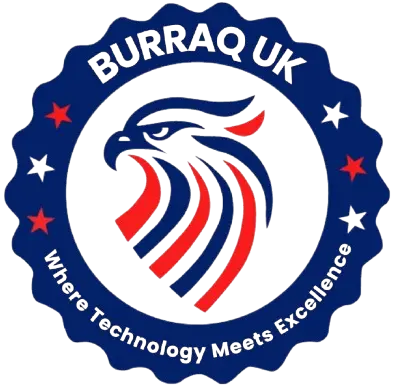ISO 22000 Food Safety Management System Lead Implementer
ISO 22000:2018 is the internationally recognized standard for Food Safety Management Systems (FSMS). It provides a comprehensive framework for ensuring food safety across the entire food supply chain — from farm to fork.
The ISO 22000 Lead Implementer is a qualified professional trained to plan, design, implement, and manage a Food Safety Management System in accordance with ISO 22000 requirements. This role is vital for organizations aiming to consistently deliver safe food products, meet legal and regulatory requirements, and build customer confidence.

Aim of ISO 22000 Food Safety Management System Lead Implementer
The aim of the ISO 22000 Lead Implementer training is to:
Equip participants with the knowledge, practical skills, and leadership capabilities required to design, implement, manage, and improve a Food Safety Management System (FSMS) based on ISO 22000:2018 standards.
Course Overview
ISO 22000 Food Safety Management System Lead Implementer
Educational Qualification
- A diploma or degree in:
- Food Science / Food Technology
- Microbiology / Biology
- Agriculture / Veterinary Science
- Nutrition / Public Health
- Quality Management
- Or any relevant technical or scientific discipline
Professional Experience
- 1–3 years of experience (preferred) in roles such as:
- Food production, processing, or packaging
- Food quality control or food safety management
- Regulatory compliance or inspections
- HACCP implementation or audits
- ISO standards implementation (e.g., ISO 9001, ISO 22000, FSSC 22000)
Knowledge Requirements
- Basic understanding of:
- Food safety hazards and hygiene practices
- HACCP principles
- Quality or food safety regulations
- Familiarity with ISO standards is helpful but not mandatory
| Course Code | Curriculum Title | Credit | DLH |
|---|---|---|---|
| BUK1968-1 | Introduction to ISO 22000 and Food Safety Principles | 4 | 15 |
| BUK1968-2 | Structure and Requirements of ISO 22000 (Clause-by-Clause) | 4 | 15 |
| BUK1968-3 | Hazard Analysis and HACCP Principles | 4 | 15 |
| BUK1968-4 | Designing and Documenting a Food Safety Management System | 4 | 15 |
| BUK1968-5 | Implementing the FSMS | 4 | 15 |
| BUK1968-6 | Monitoring, Internal Audit, and Management Review | 4 | 15 |
Module 1: Introduction to ISO 22000 and Food Safety Principles
- Overview of ISO, FSMS, and ISO 22000:2018
- Key food safety concepts and terminology
- Understanding the PDCA (Plan-Do-Check-Act) cycle
- Importance of food safety in the global supply chain
Module 2: Structure and Requirements of ISO 22000 (Clause-by-Clause)
- Context of the organization
- Leadership and worker participation
- Planning (risks, opportunities, and objectives)
- Support (resources, competence, communication, documented information)
- Operational controls (PRPs, CCPs, OPRPs)
- Performance evaluation and internal audits
- Improvement (nonconformities, corrective actions, continual improvement)
Module 3: Hazard Analysis and HACCP Principles
- Introduction to Codex Alimentarius and HACCP
- Identifying food safety hazards (biological, chemical, physical)
- Determining Critical Control Points (CCPs) and Operational PRPs
- Applying risk assessment and control measures
- Monitoring, validation, and verification
Module 4: Designing and Documenting a Food Safety Management System
- Establishing food safety policy and objectives
- Defining FSMS scope and process mapping
- Creating mandatory documents and records
- Developing procedures and flow diagrams
Module 5: Implementing the FSMS
- Resource allocation and training
- Communication with internal and external stakeholders
- Control of outsourced processes and suppliers
- Managing product recalls and emergencies
Module 6: Monitoring, Internal Audit, and Management Review
- Setting up FSMS performance indicators
- Conducting internal audits (planning, execution, reporting)
- Leading management review meetings
- Using data to drive improvement
Module 7: Preparing for Certification
- Certification process and selecting a certification body
- Conducting a gap analysis and readiness assessment
- Managing pre-audit corrections and documentation
- How to handle a third-party certification audit
Module 8: Leadership and Change Management
- Leading an implementation team
- Gaining top management commitment
- Change management strategies
- Promoting a culture of food safety and continuous improvement
Module 9: Case Studies and Practical Workshops
- Real-life FSMS implementation scenarios
- Risk assessment and hazard control exercises
- Drafting HACCP plans, food safety policies, and SOPs
- Group discussions and role plays
Module 10: Final Assessment and Certification
- Review of key topics
- Final written or practical assessment
- Feedback and improvement suggestions
- Issuance of ISO 22000 Lead Implementer Certificate
- Food Safety Officers / Managers
- Quality Assurance (QA) & Quality Control (QC) Professionals
- HACCP Team Leaders and Members
- Compliance and Regulatory Officers
- Internal Auditors
- Food Industry Consultants
- Production and Operations Managers
- Trainers and Academics in Food Safety
- Aspiring Professionals and Graduates
- All Modules within this qualification are assessed internally by the approved training Centre and externally verified by BURRAQ UK. The program uses a criterion-referenced assessment approach to ensure that learners successfully meet all required learning outcomes.
- A Pass in any unit is granted only when the learner submits valid, reliable, and authentic evidence that demonstrates achievement of the assessment criteria. The Assessor is responsible for reviewing this evidence and confirming that the learner has attained the expected standard.
